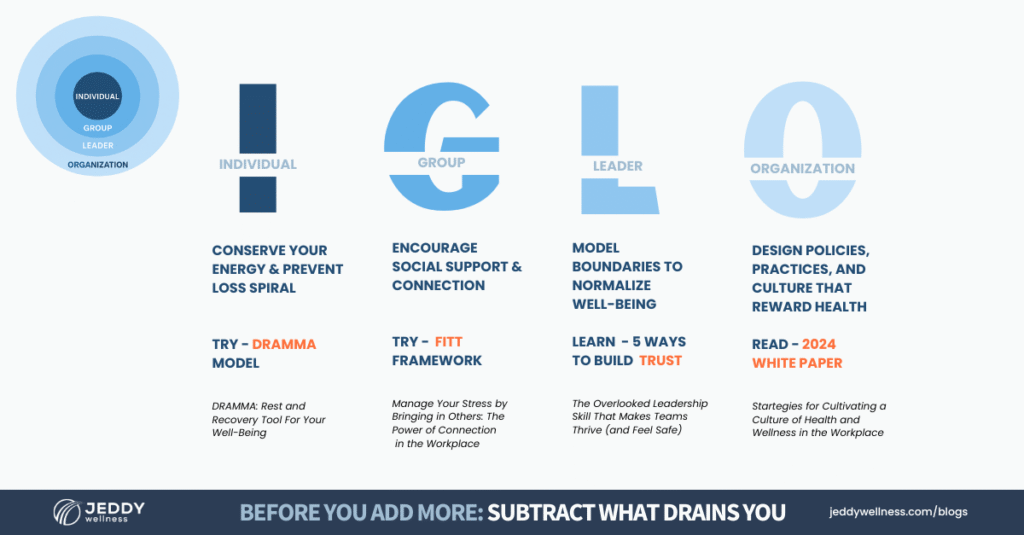It’s 11:15 PM. Your laptop is still open. You’ve put in 10+ hours every day this week. Your brain feels foggy, your eyes are sore, but you keep working on that report.
Fueled by caffeine, or those addictive Awake chocolates, you still need to iron your clothes and make it to the gym. Deep down, you know you should stop, rest, and recover.
But work feels like your life. There’s no time for anything else. So you push through.
“I Gotta Stop” Moments
That instant when your energy begins to fade? That’s your “I gotta stop” moment, a subtle signal from your body and mind before burnout starts.
Most of us ignore it. Stopping feels like failure. But these moments are like sliding doors, small choices that can protect your well-being, restore energy, and prevent burnout.
They aren’t always about career wins. Often, they hide in everyday decisions that quietly shape your stress and mental health.
Learn more on how to conserve your energy.
Examples in the Workplace
In corporate life they show up like:
- Saying yes too often: One more task, one more meeting, one more project. Each yes seems small, but over they add up.
- Avoiding tough conversations: Ignoring conflict may feel safe now, but adds long-term stress.(eliminate communication breakdowns)
- Skipping rest or micro-breaks: “I’ll eat after this task” becomes a habit, eroding work-life balance and raising cortisol levels (yes, even that infamous cortisol belly!).
We tell ourselves, “Everyone does it, I’ll survive.” But burnout doesn’t appear overnight. Anxiety, disengagement, and exhaustion can take months or even years to show up.
Want to learn more about burnout profiles? Read here.
Subtraction: The Other Side of Wellness
World Mental Health Day 2025 reminded us that wellness isn’t just about adding more tools or practices. It’s also about subtracting what drains you.
Small steps you can take:
- Noise: Turn off unnecessary notifications. Skip non-essential meetings.
- Unrealistic expectations: Let go of perfectionism and impossible targets.
- “Shoulds”: Stop overcommitting just because it’s expected
- Overcommitment: Focus on tasks that match your priorities and energy.
Your “I gotta stop” moments often reveal exactly what to subtract.
IGLO Strategies

Acting immediately, not later, is key to reclaiming control and preventing burnout. Here what you can do:
- Individuals: Notice micro-moments, add, and subtract what drains you. Conserve and
protect your energy by prioritizing rest and recovery. Try the DRAMMA model. - Groups (Teams): Encourage social support and connection across teams. We
recommend the FITT framework. - Leaders (Managers): Model boundaries, normalize well-being and mental health
conversations, to build trust and safety. - Organizations: Design policies, practices, and culture that reduce hidden stressors and
reward healthy behaviors. Read our white paper.
Every small choice at the individual level affects groups, leaders, and the organization and vice versa.
👉Reflection & Action Prompt
Ask yourself: “What is one thing I can stop doing right now that will protect my energy and focus?”
Track your micro-decisions, reflect weekly, and watch how these tiny shifts ripple across your life and workplace.
Subtract wisely, and protect your energy as 2025 comes to a close.
Written By: Sumana Jeddy
______________________________
Stay Connected with Jeddy Wellness
Discover evidence-based research and innovative strategies to build and activate healthier workplaces.


